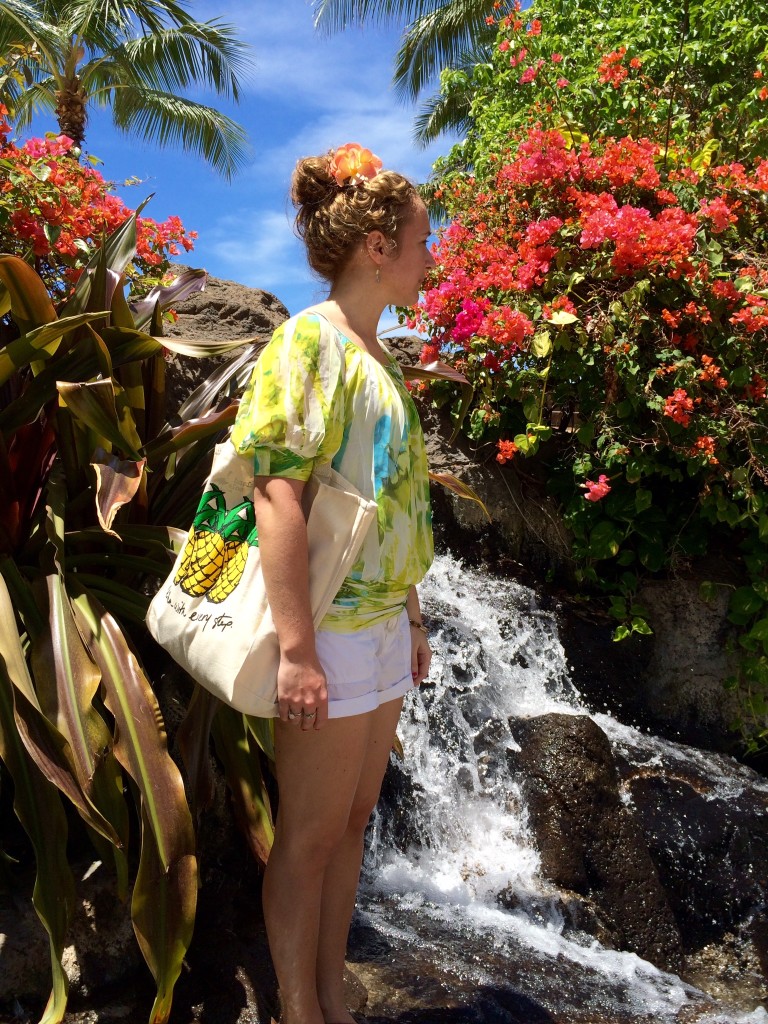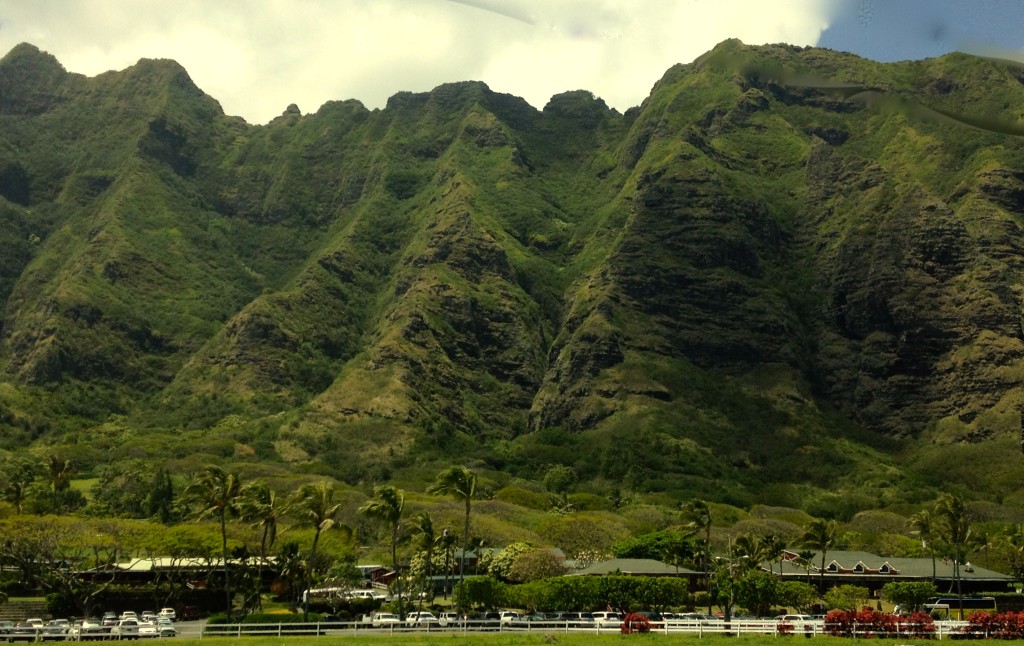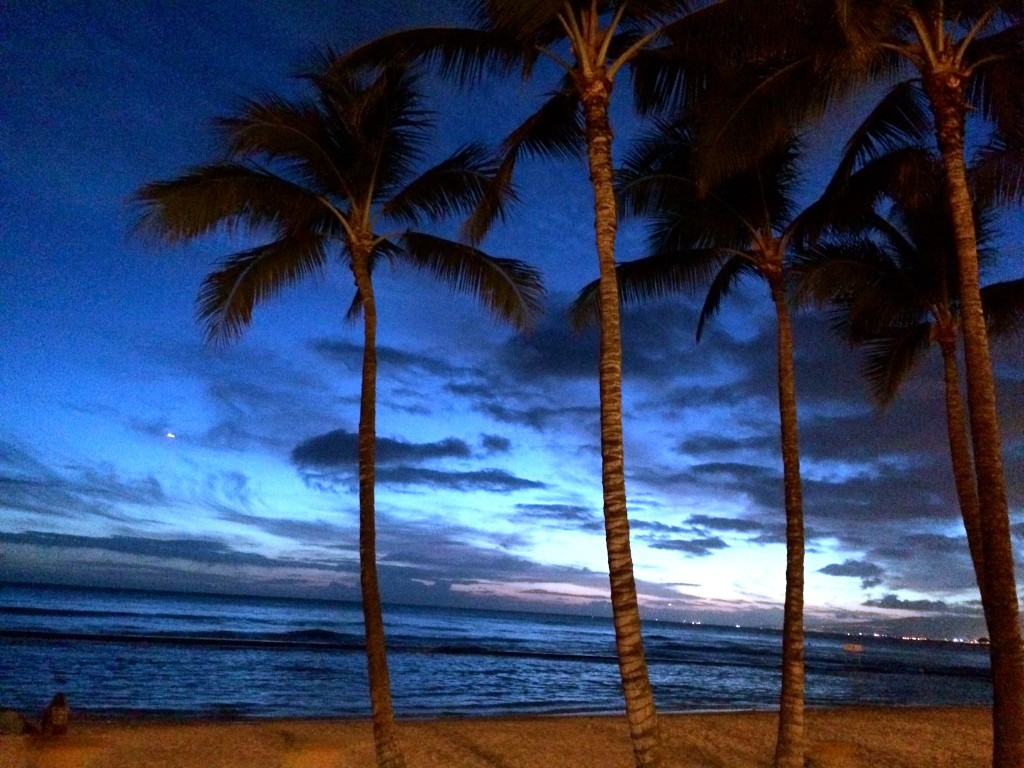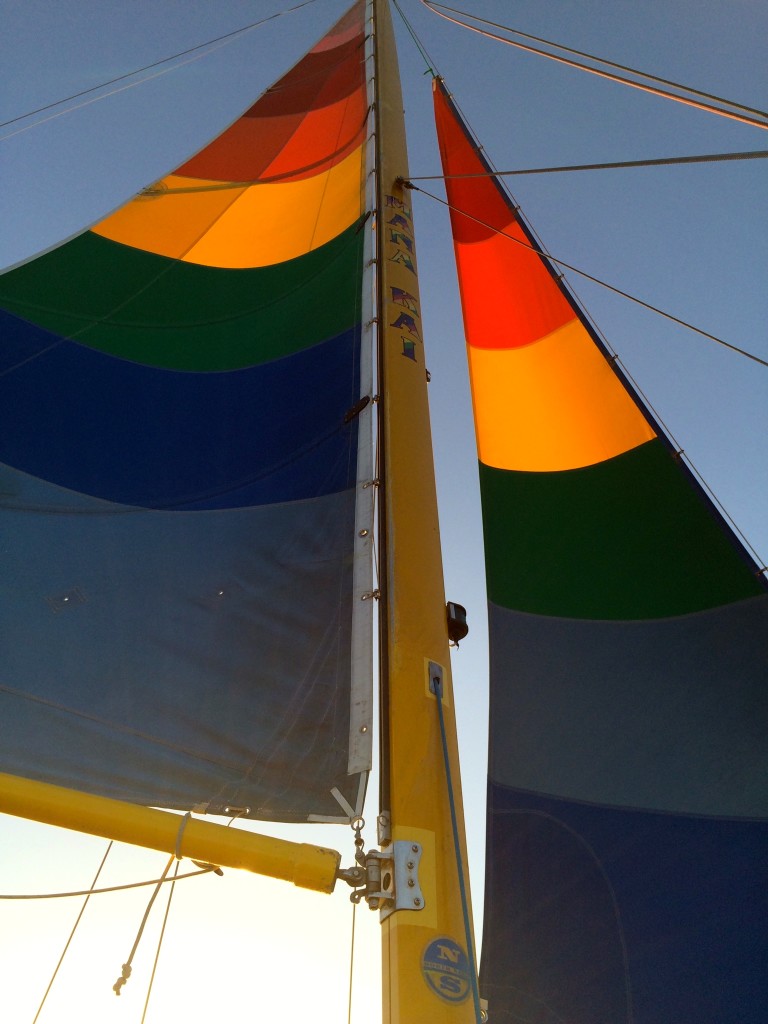“Travel is more than the seeing of sights; it is a change that goes on, deep and permanent, in the ideas of living.” –Miriam Beard
It’s an age-old adage: traveling broadens our perspective, transforming our sense of self in relation to the world at large, challenging us to see with new eyes and deepening our sense of gratitude and appreciation as we gain insight into the culture, customs and traditions of an unfamiliar place.
I was recently reminded of this after a visit to O’ahu, Hawai’i where I was bewildered each time I remembered that I wasn’t in a foreign land, but was, instead, still in the United States – albeit in the middle of the Pacific Ocean, nearly 2,500 miles away from the mainland.
Surrounded by a kaleidoscope of blue and turquoise waters, swaying palm trees, volcanic craters, green mountainous terrain and tourists from all over the world, it was hard to grasp that Hawai’i isn’t a nation of its own. Indeed, never before have I visited another U.S. state feeling utterly transported into a different “realm”, as if I was a foreigner navigating an unknown territory.
But, in many ways, I was just as much a “foreigner” in Hawai’i as I’ve previously been in other countries outside the United States.
Much of Hawai’i, including its culture, history and landscape, was unknown to me. I had not anticipated, for instance, the steep, rugged and lush green terrain lining the highways as you drive north of Honolulu (or the strange, Christmas-like trees poking out of them).
I had not known that its traffic rivals some of the worst traffic days in New York City. Or that the temperature and weather remain fairly consistent year-round (sunny, in the 70s and 80s).
I didn’t know that the Hawaiian alphabet consists of only 12 letters (which explains the confusing, yet comical amount of street names beginning with “k”). And I hadn’t realized that the reason Hawai’i is considered the “Aloha State” is much more elaborate than the word “Aloha” being used as a form of “hello” and “goodbye.”
It was precisely these things, though – being exposed to a new place, seeing and learning new things, talking to new people – that heightened my sense of self, broadening my perspective not only of my own world, but of the world at large.
There I was, in the middle of the Pacific Ocean, sitting on a beach once frequented by members of the U.S. Navy, on an island formed by volcanoes that erupted millions of years ago, watching the shadows of surfers and paddle borders against the setting sun and, suddenly, any worry, fear and uncertainty I had faded into oblivion.
What mattered then was the sole acknowledgment that I – that we – are a part of something much larger than ourselves. That the daily pains, struggles or doubts we so routinely and easily get caught up in can, at times, distract us from the beauty and richness – or “all things good” – in life. That we are but small creatures occupying a small place in the world, and universe, for a small amount of time.
“Travel makes you modest,” Gustave Flaubert, a French novelist in the 19th century, once wrote. “You see what a tiny place you occupy in the world.”
Such a perspective is exceedingly important to have in order to maintain a healthy sense of self and add meaning to our lives, yet a very difficult one to maintain with the various obligations and responsibilities that daily life requires.
But while I’ve often thought of travel as a method of escape – a way to escape work, technology, reality and stress – I think travel is what ensures that life – in all its beauty, richness and magnificence – does not escape us.
“So…
…throw off the bowlines…
…sail away from the safe harbor…
…catch the [Hawaiian] trade winds in your sails…
Explore.
Dream.
Discover.”
– H. Jackson Brown Jr.



